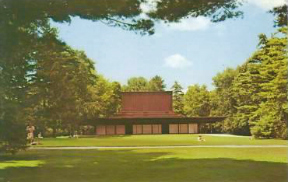 I learned Brahms’s Opus 114 quickly — about ten days from my first encounter with the music to the performance. As a fellow at Tanglewood, I was working on several chamber and ensemble pieces. There were coachings. (Joel Krosnick worked with me and my Brahms colleagues.) The performance went well. There was one place in the last movement when I didn’t come in properly — I played a conspicuously wrong harmony. For years, I avoided listening to the recording of the concert. I remembered the wrong harmony too well.
I learned Brahms’s Opus 114 quickly — about ten days from my first encounter with the music to the performance. As a fellow at Tanglewood, I was working on several chamber and ensemble pieces. There were coachings. (Joel Krosnick worked with me and my Brahms colleagues.) The performance went well. There was one place in the last movement when I didn’t come in properly — I played a conspicuously wrong harmony. For years, I avoided listening to the recording of the concert. I remembered the wrong harmony too well.
Sometimes I’ve joked that I remember wrong notes I played decades ago. It’s not a joke. It’s more like a commentary on the relentlessness, the obsession of late-style classical music culture. “Nail it!” Perhaps a bad metaphor — would those be nails in a coffin?
I believe one of the most important functions of recording for the performer (for me at least) is reassurance. Of course, hearing recordings of our playing can reveal things that need improvement. Maybe even more importantly, the recording may allow us to hear the things we are doing well, things that work.
Eventually, I heard the recording of the Tanglewood Brahms performance. There was no mistake in the last movement… My “mistake” was in my perception of what happened in the performance.
Why did I believe (with certainty) that I’d erred? The hypervigilance of the classical performer? Some hidden wish not to succeed completely?
I can’t know the answer.

Bruce – what a nice post. I too avoid listening to tapes that I remember having “mistakes.” but I think you have changed my point of view – reassurance for any creative person is an important thing as we don’t get it from too many reliable sources. Thanks for this.